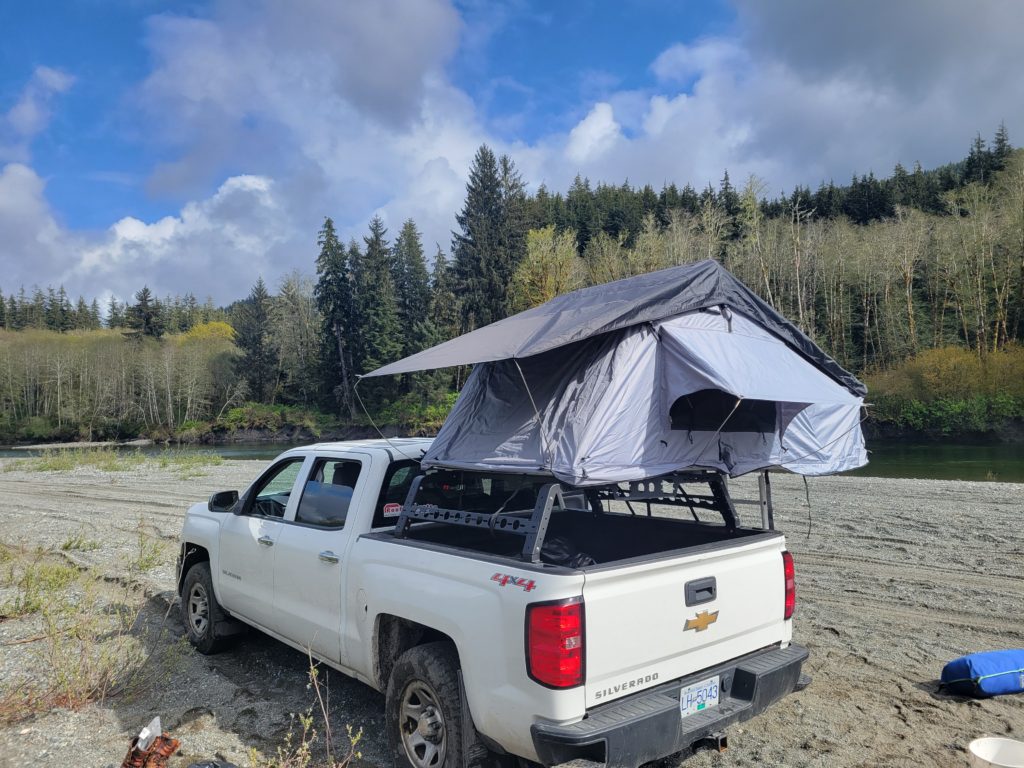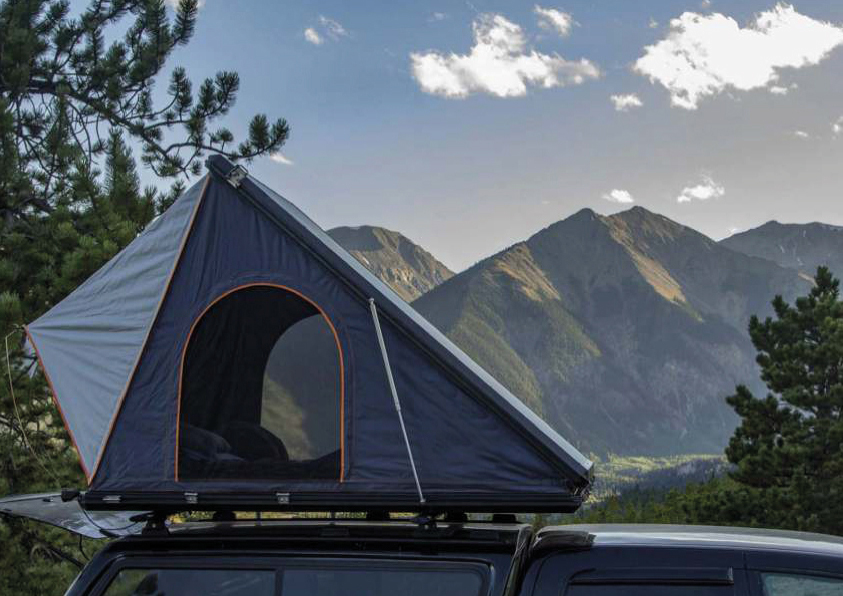When it comes to camping, there are a few different options available to you – one of which is the choice between rooftop tents and ground tents. Rooftop tents are a hot item among travelers, roadies, and campers, and you can see why. They are simple to assemble, keep you off the ground, and can go anywhere your four-wheel drive can. Even though some people absolutely adore their rooftop tents, they may be unsuitable for everyone. The ground canvas has stood the test of time and has been proven to be very versatile, low-cost, and available in many forms and sizes. Let’s break it down and look at what you should consider.
Ease Of Setup

A rooftop tent is probably your best bet if you are looking for something quick and easy to set up. Most of them come with pre-assembled frames and only require you to unfold them and secure them to your roof rack. Ground tents, however, can take a bit more time to set up. Depending on the size and type of ground tent, you may have to put up poles and guy-lines. This can be a bit more time-consuming, but it also means that you have more control over the final shape of your tent.
Versatility
The versatility of the setup you select will depend on the specifics of your circumstance. For example, camping in a ground tent, you can camp in different ways than you would with a car tent. In addition, you may use your vehicle throughout the day without packing up camp when you camp in a ground tent. Many rooftop tents limit the number of people who may sleep there.
A rooftop tent can be more versatile than a ground tent if you do not have children and prefer to camp in your car. You may camp anywhere you can park your vehicle or four-wheel drive, even on rocky, uneven ground that turns into a small creek during a rainstorm. This is mainly because, unlike a ground tent, you do not need to reserve a flat, dry spot to peg out.
Durability

Rooftop tents are often made with high-quality, waterproof materials that can withstand harsh weather conditions. Ground tents, on the other hand, are usually made with cheaper materials that are more likely to tear or leak. Rooftop tents also have an advantage when it comes to durability because they’re not constantly being moved around or packed up and down. Ground tents can suffer wear and tear from being set up and taken down multiple times, eventually leading to holes or tears.
While rooftop tents are durable, they do have limitations. If you leave the tent installed on your vehicle for extended periods, damage can occur, and the fabric may be degraded by UV light over time. If rainwater is left to sit on your tent, it can also cause mold to grow.
Cost
Rooftop tents are generally more expensive than ground tents. This is because they require a specialized roof rack system to be installed on your vehicle, and the materials used in construction are typically higher quality. A ground tent is probably the way to go if you’re looking for a budget-friendly option. But a rooftop tent is worth the investment if you want something that’s easy to set up and provides a little more comfort.
Comfort
Rooftop tents are more comfortable than ground tents in a few ways. First, they’re elevated off the ground, so you don’t have to worry about sleeping on rocky or wet terrain. Second, they often come with built-in comfortable mattresses, unlike most inflatable mattresses or camping mats used in ground tents. Also, rooftop tents are more insulated than ground tents, so you will stay warmer in cold weather.
Even better, your roof racks provide additional height and consequently increase air flow, helping to significantly reduce condensation and increasing the comfort levels by at least one notch.
Accessibility

Regardless of whether or not you enjoy climbing ladders to get into and out of a rooftop tent, the simple fact is that you’re going to have to do so. Rooftop tent ladders are often quite narrow and lightweight, making climbing challenging for the elderly or those with reduced mobility.
Ladders can also be an issue if you have small children. While they will almost definitely love the idea of sleeping on top of the car, excited kids in a tent two meters off the ground can affect your ability to relax!
Living Space
In terms of interior living space, ground tents will usually win out. This is simply due to the fact that there’s more room to work with when you’re not limited by the size and shape of your vehicle. Rooftop tents often have very small “footprints” and low ceilings, making them feel cramped, even when they’re not. If you’re planning on spending a lot of time inside your tent (especially if you’re tall), a ground tent is probably the way to go.
Safety
While it’s true that you’re more exposed to the elements in a rooftop tent, that doesn’t necessarily mean that they’re less safe. In fact, many people feel safer in a rooftop tent. This is because they’re less likely to be bothered by animals or insects. Ground tents can also be more susceptible to flooding if you’re camping in an area with a lot of rain.
Final Thoughts
Provided it fits in with your camping preferences and lifestyle, a rooftop tent can offer a level of freedom unmatched by a ground tent. An RTT enables you to camp anywhere and in all kinds of environments and weather.
While a good rooftop tent will cost you more than a ground tent, if you care for it properly, it will provide you with comfortable camping for many years. At RooftTopTents.ca, Our range of rooftop tents offers soft and hard shell options and features affordable, high-quality models. Once you find the right RTT for you, all that’s left to do is choose your destination, pack your bag, and hit the road. Happy adventuring!


